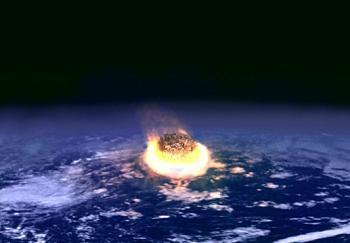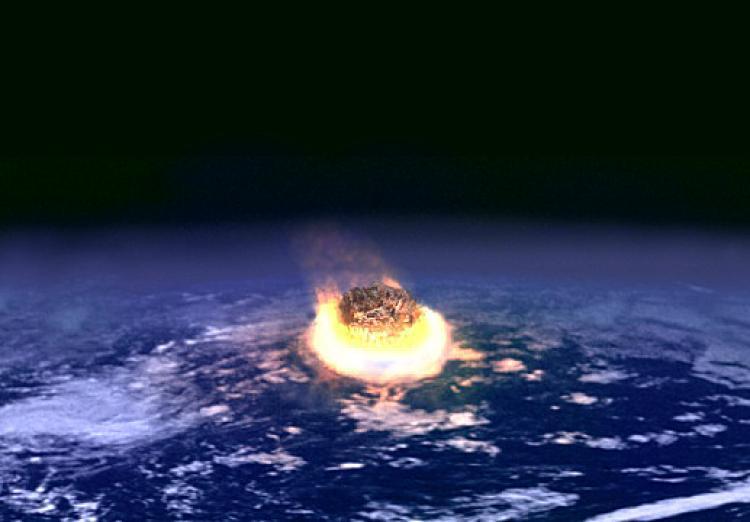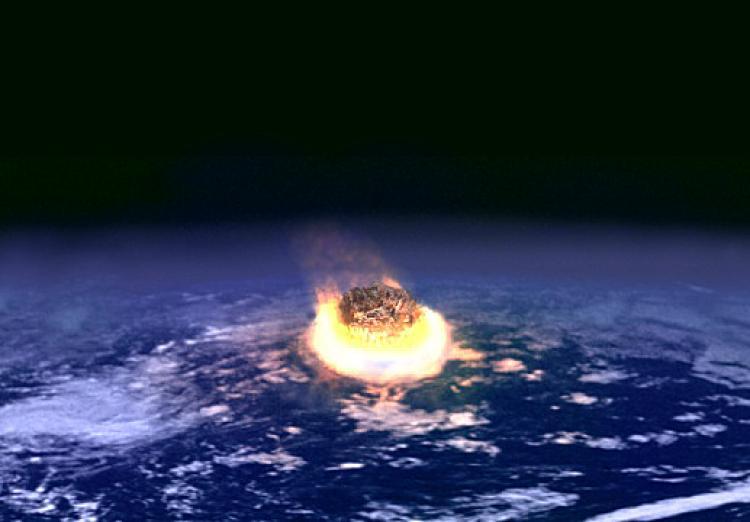Apophis Asteroid Not a Danger but ‘A real chance’ for Study
Russian scientists last week said that the Apophis asteroid may collide with the earth in 2036.

An artist's conception of a giant asteroid hitting the early earth. Courtesy of NASA
|Updated:





